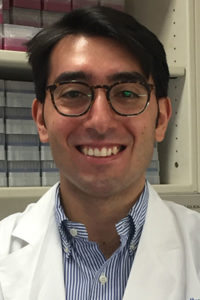
Cardiovascular disease is recognized as one of the most common complications of diabetes. Clinicians have long viewed coronary arterial disease and atherosclerosis as the major culprits, but heart failure has emerged as a larger problem—and one that’s more difficult to manage.
“If you’re thinking about treating patients with diabetes and heart failure, the question has always been whether you should treat mostly the diabetes or mostly the heart failure,” said Rong Tian, MD, PhD, Professor of Anesthesiology and Pain Medicine, and of Bioengineering, and Director of the Mitochondria and Metabolism Center at the University of Washington.
“The best scenario would be to treat both, but we couldn’t until very recently when novel strategies began to emerge, such as boosting cellular NAD (nicotinamide adenine dinucleotide) levels and SGLT2 (sodium-glucose cotransporter-2) inhibitors,” she continued. “SGLT2 inhibitors are probably a miracle. They were first developed to treat diabetes but are so effective at heart failure they are used even if you don’t have diabetes.”

Dr. Tian will open the symposium Insulin Resistance and Heart Failure Syndromes Including HFpEF on Monday, June 6. The two-hour session begins at 4:30 p.m. CT in Room 217 at the convention center. The session’s presenters will review emerging data pointing to the effectiveness of SGLT2 inhibitors and therapies targeting NAD metabolism in the treatment of both heart failure with reduced ejection fraction (HFrEF) and heart failure with preserved ejection fraction (HFpEF).
“HFpEF is widely considered the greatest unmet need in cardiovascular medicine because contrary to HFrEF, we have had little to no effective therapy,” said Gabriele G. Schiattarella, MD, PhD, Group Leader at Max Delbruck Center for Molecular Medicine, and Charité University Medical Center, Berlin, Germany. “There are about 30 million individuals worldwide suffering from HFpEF, and we still struggle to provide effective clinical care.”
HFpEF is strongly associated with obesity, metabolic syndrome, and multiple metabolic alterations commonly seen in diabetes, Dr. Schiattarella explained. SGLT2 inhibitors are the first class of agents to uniformly improve survival and reduce hospitalization in patients with heart failure. Unlike other heart failure treatments, SGLT2 inhibitors address underlying metabolic dysfunction that contributes to heart failure, he said.
“I would like to see more awareness of the multiple components of metabolic syndrome in heart failure and treatment of the whole patient,” Dr. Schiattarella said. “We need to realize that metabolic pathways are the keys to be targeted, not just the heart.”

SGLT2 inhibitors have transformed heart failure treatment with or without diabetes, but the mechanism of action isn’t clear. The effects on blood glucose, blood pressure, and osmotic diuresis are modest, while the effects on myocardial energetics, inflammation, congestion, and other potential mechanisms of action are tantalizing but not yet fully established or demonstrated, said Carlos G. Santos-Gallego, MD, Instructor in Medicine at the Icahn School of Medicine at Mount Sinai. What is abundantly clear is that the impact on heart failure is astounding.

“Until very recently, there was no effective treatment for HFpEF,” Dr. Santos-Gallego said. “Within the past couple of months, there have been two large trials, EMPEROR-Preserved and DELIVER, showing for the first time that we can improve the prognosis in HFpEF using SGLT2 inhibitors. There are many theories as to how they work, which means that no one theory tells the whole truth. We will discuss many of those theories on Monday.”
SGLT2 inhibitors may also act to reduce microvascular complications in the heart.
“Microvascular disease is thought to be part of the pathogenesis of HFpEF in some cases,” said Marie A. Guerraty, MD, PhD, Assistant Professor of Medicine at the Hospital of the University of Pennsylvania. “Disease of the coronary microvasculature predisposes patients to HFpEF. This symposium is an opportunity to learn about and target some of the biggest consequences of diabetes—the consequences that kill people with diabetes. Understanding cardiovascular disease in these patients has the potential to save a lot of lives.”
[sub-post-content]